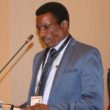A research has revealed that beliefs in witchcraft and God are hindering enhanced agricultural productivity and development as people are reluctant to employ essential cultivation techniques.
Meanwhile, the International Institute of Tropical Agriculture (IITA) says Zambia and other sub-Saharan countries should increase productivity of cassava and soya beans, while reducing over-dependence on maize.
Presenting a report in Lusaka yesterday on conservation agriculture in Zambia, Indaba Agricultural Policy Research Institute (IAPRI) senior research associate, Stephen Kabwe, said farmers across the country are hesitant to employ cultivation techniques, adding that they instead believe that God would increase their yields.
“Conservative agriculture has the potential to double the yield of a farmer. This technique alone can help you to improve in your production in as far as agriculture is concerned. But people would rather till their land until it loses all its fertility. And they do again and again so we had to research on why people do not want to adopt this technique. And in our research, we found out that land itself is a hindrance in the adoption. Land which is 3.5 hectors and below, you find that people do not want to adopt because they think the land is small,” Kabwe revealed.
“But the interesting one is this; you know, for instance, that there a lot of farmers with huge hectors of land. And so, we found out that farmers would rather believe that God would help them out and increase their yields. Some feel witchcraft would help them out. Even when their crop fails to grow and mature properly, they say someone bewitched them. But that’s not true. When you go out to the villages it’s actually a common belief and the way they talk, you would want to believe them, but it’s simply not true. So, it has impacted the development of agriculture in Zambia and I would like to say that technique is very beneficial. Zambia can really benefit if we can employ if fully. The technique has been employed better in Western Province but the other provinces, it’s always below 3 per cent.”
Meanwhile, the IITA said Zambia and other sub-Saharan countries should increase productivity of cassava and soya beans while reducing over-dependence on maize.
IITA representative, Godfrey Chigeza, said cassava and soya beans are more valuable than maize, adding that they are resistant to Zambia’s ever-changing climatic conditions, which are damaging to maize.
“Research and delivery on agricultural productivity; climate change; nutrition; enabling policies; economic growth; poverty reduction and sustainable natural resources management. We need our governments in sub-Saharan Africa to change their agendas to prioritizing production of soya beans and cassava and reduce over-dependence on maize,” observed Chigeza.
“Their mandate should be on cassava, maize, yam, soybean, banana/plantain and cowpea. These are in fact more valuable than maize. You can do more with cassava and soya beans than you can with maize. There is a growing demand, for instance, for animal feed. That is feed for poultry, pork, dairy and aquaculture industries. Soya is the raw material for edible vegetable oils and protein. And actually, we can export non-GMO soybean from Africa. Soya beans are also [a] source of protein for direct consumption by rural households, for example, maize-soya blends. And three-quarters of such products are from soya beans, so you can see the importance of this crop.”












